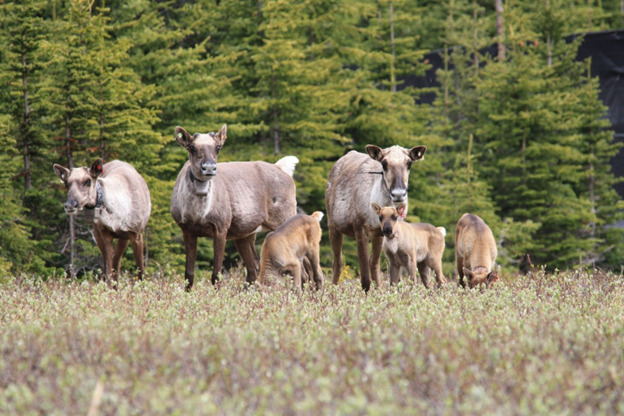The Klinse-Za caribou herd is a threatened population in northern British Columbia, Canada. The West Moberly First Nations and Saulteau First Nations, two Indigenous nations with traditional territories in the region, have taken action to recover this species through their Klinse-Za caribou herd recovery project.
This project is grounded in Indigenous knowledge and values and involves a holistic approach to caribou recovery that includes habitat restoration, predator management, and community education and engagement. The project partners include Wildlife Infometrics, governments, industry, and conservation groups.
One key aspect of the project is the use of maternal penning, a technique where pregnant female caribou are captured and placed in an enclosed area to give birth and rear their calves. This allows the calves to reach a size where they can better evade predators before being released back into the wild. Additionally, the First Nations and BC government have conducted wolf reductions in caribou habitat to manage predator populations.
The project’s success is evidenced by the more than three-fold increase in the Klinse-Za herd population from 38 animals in 2013 to over 130 in 2023. Ongoing habitat restoration work, such as tree planting and forest management, is being carried out to support the herd’s long-term recovery.
This Indigenous-led approach to caribou recovery provides a model for future conservation efforts that prioritizes Indigenous knowledge, values, and leadership while working collaboratively with partners from various sectors.
